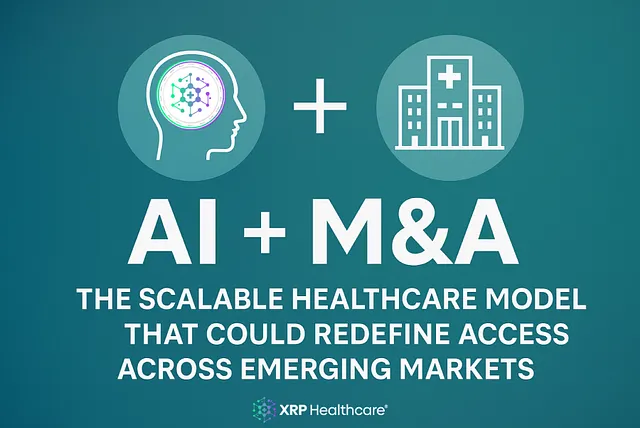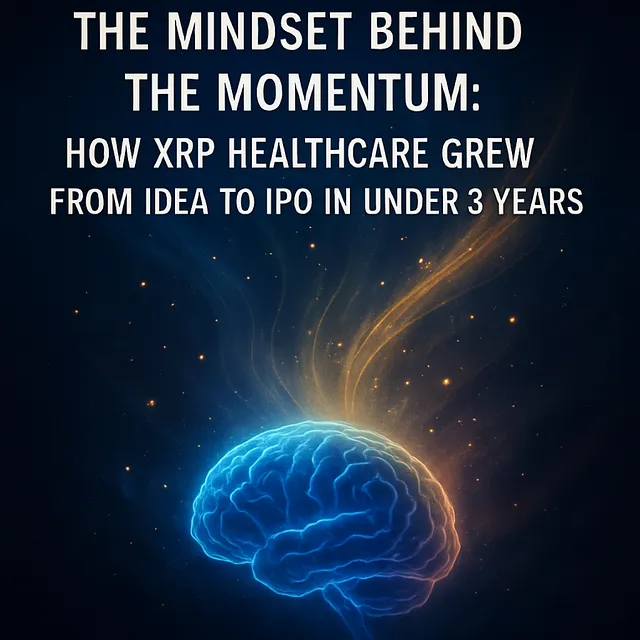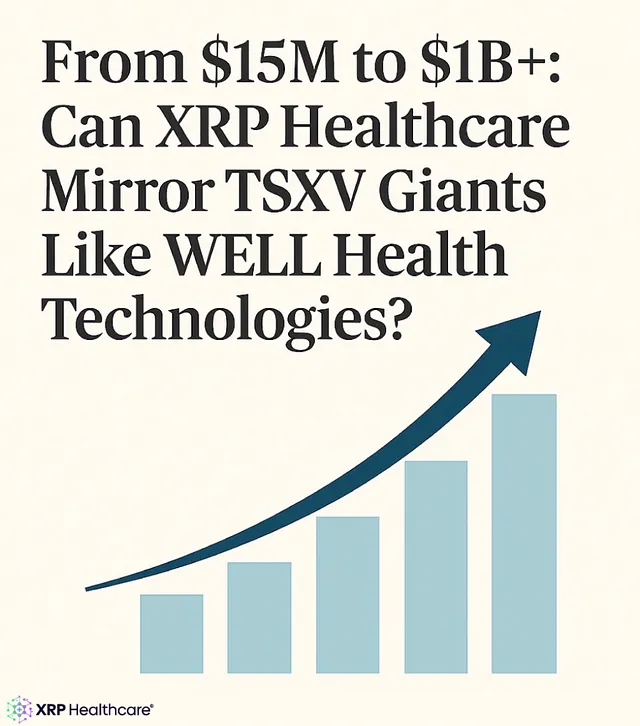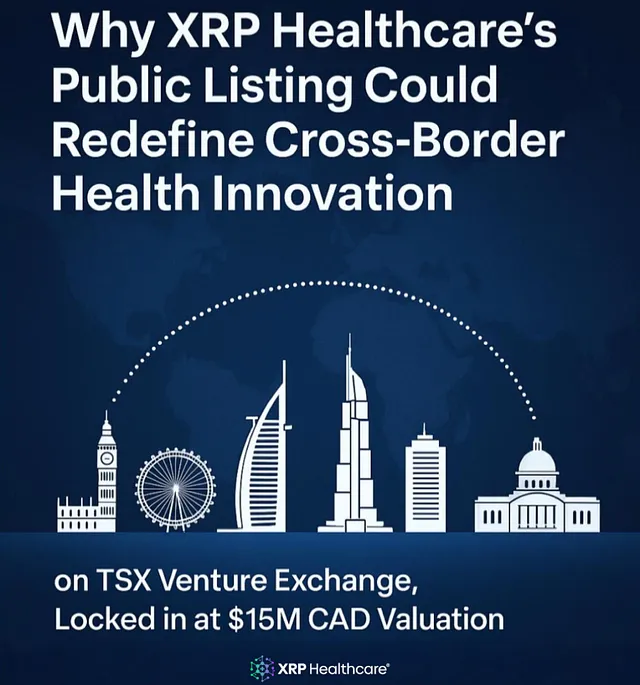In many parts of the world, the biggest healthcare challenge isn’t a lack of innovation it’s a lack of infrastructure.
Across emerging markets, millions live without reliable access to doctors, clinics, or even basic medications. While tech startups have tried to solve this gap with apps alone, the hard truth is: you can’t treat real-world problems with software-only solutions.
XRP Healthcare is taking a radically different approach.
Founded in the UK, headquartered in Dubai, and operating at ground level in Uganda, the company is building a hybrid healthcare model that fuses M&A strategy with AI technology and it’s already gaining traction with a planned public listing on Canada’s TSX Venture Exchange at a $15M CAD valuation.
Why Buy Beats Build in African Healthcare
Sub-Saharan Africa isn’t a healthcare desert it’s a patchwork of small, under-resourced, and often disconnected facilities. According to the WHO:
-
Over 60% of facilities in low-income regions lack adequate diagnostic tools
-
More than half face routine stockouts of essential medicines
-
Many run entirely without digital systems
Instead of starting from zero, XRP Healthcare is acquiring existing pharmacies and clinics then equipping them with modern systems, unified branding, and AI-powered tools. The result is faster expansion, lower costs, and trusted care rooted in the community.
Introducing the XRPH AI Ecosystem
At the heart of this transformation is the XRPH AI App, a smart, multilingual digital health assistant connected to every facility in the network.
Its current features include:
-
Language support: English, Swahili, French (with more in development)
-
Smart doctor matching: Find and connect with regional providers
-
AI triage: Upload images for early diagnosis of skin, throat, and wound conditions
-
Blended medical advice: Combining modern and traditional treatment paths
-
Savings access: U.S.-based users can tap into an 80% discount card at 68,000+ pharmacies
-
Blockchain integration: With the XRPH Wallet for future health payments and identity verification
This platform bridges physical and digital care, unlocking remote diagnostics, data-driven operations, and more equitable access.
The Cost-Efficiency Equation
This isn’t just good for patients it’s smart business:
-
Opening a new clinic in East Africa: $150K–$400K USD
-
Acquiring and upgrading an existing one: Under $50K
-
AI triage vs. traditional consults: Up to 70% cost reduction
-
Smartphone access in Africa is projected to hit 88% by 2030 (GSMA)
In other words: scale faster, spend less, and reach farther.
Proven Blueprint, Locally Executed
XRP Healthcare’s model isn’t untested. It’s rooted in the success of global healthtech giants:
-
One Medical scaled through acquisitions before Amazon acquired it for $3.9B
-
Well Health Technologies (TSX: WELL) used the RTO path to consolidate clinics and go digital
-
Babylon Health scaled AI-driven care to millions worldwide
What makes XRP Healthcare different is its emerging-market-first focus. Instead of exporting solutions to the Global South, it’s building from within, investing where healthcare gaps are largest and innovation is most urgent.
A Platform for Impact and Investment
This is healthcare that doesn’t just scale like software. It delivers care like a clinic. It builds trust in-person and extends reach through the cloud. And it turns fragmented systems into something investors, patients, and partners can all believe in.
For Uganda today and across Africa tomorrow XRP Healthcare is proving that the future of care isn’t just digital. It’s connected, localized, and designed to grow.
👉 Read the full LOI announcement here
— The XRP Healthcare Team






